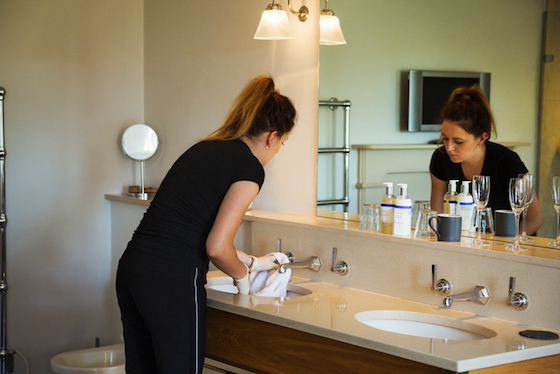
The profitability of hotels in the United States is being eroded by rising labor costs as a result of incremental increases in minimum wage, according to research from proprietary benchmark service HotStats.
In the past year alone, profit levels at hotels in San Francisco suffered a 2 percentage-point year-on-year decline in profit per room, primarily as a result of a 4.6 percentage point increase in labor costs. It is no coincidence that the San Francisco market has one of the most aggressive schedules of minimum wage increases: It is on target to hit US$15 per hour by July 2018 from US$10.74 per hour in 2014.
According to the U.S. Labor Department, wage growth in the hospitality industry is outpacing growth across other industries. This is hardly surprising, as a significant portion of the more than 78 million hourly workers in the U.S. will undoubtedly be among the 15.5 million employed in hospitality.
The federal minimum wage was last adjusted in 2009, when it reached US$7.25 per hour, but recent legislation has allowed for states to implement their own policy on increases.
As of January 2018, 29 states had a minimum wage higher than the federal minimum and 18 states pledged to increase their minimum wage to as high as US$15 per hour, a figure that supporters of workers’ rights classify as a “living wage.”
In 13 cities, including New York City, Washington D.C., and parts of California, the minimum wage has surpassed US$12 per hour, which seems reasonable as these areas have the highest cost of living in the country. But as a result of this, hotel profits in these locations is being eroded rapidly.
In New York, labor costs were 46.5% of total revenue in 2017, up from 44% in 2016 and 42.7% in 2015. While that increase clearly has been as a result of the phased year-on-year increases in minimum wage, a high proportion of employee unionization and a high cost of living are adding to the issue. Profit conversion at hotels in New York City was just 30.2% of total revenue in 2017.
In stark contrast, despite torrid trading in recent years, profit conversion at hotels in Houston remains buoyant at 41.4% of total revenue. This is primarily due to labor costs staying well below the national average, at 30.2% of total revenue, as the minimum wage remains at US$7.25 per hour.
In San Diego, where unemployment has dropped below state and national averages, there is significant pressure on labor costs at hotels, which increased by 3% year-on-year, to 28.4% of total revenue.
However, further to the US$1 jump to US$11.50 in January 2017, there was no minimum wage increase in January 2018 and growth will be indexed in line with the Consumer Price Index from 2019. This strategy appears to be a more measured and sustainable approach to wage increases than the blanket target of US$15 per hour in California.
Contributed by Pablo Alonso, CEO of HotStats
